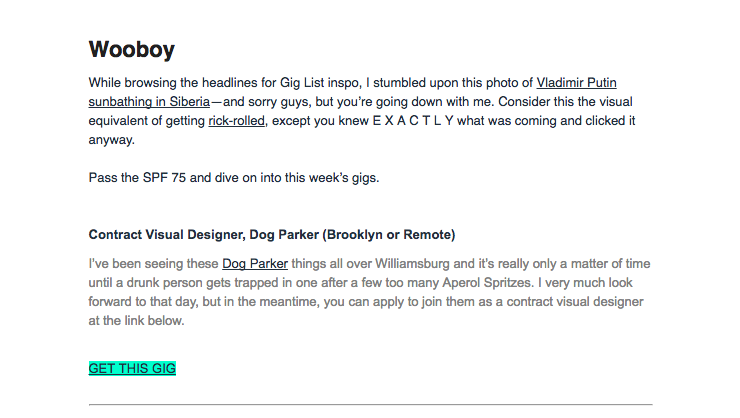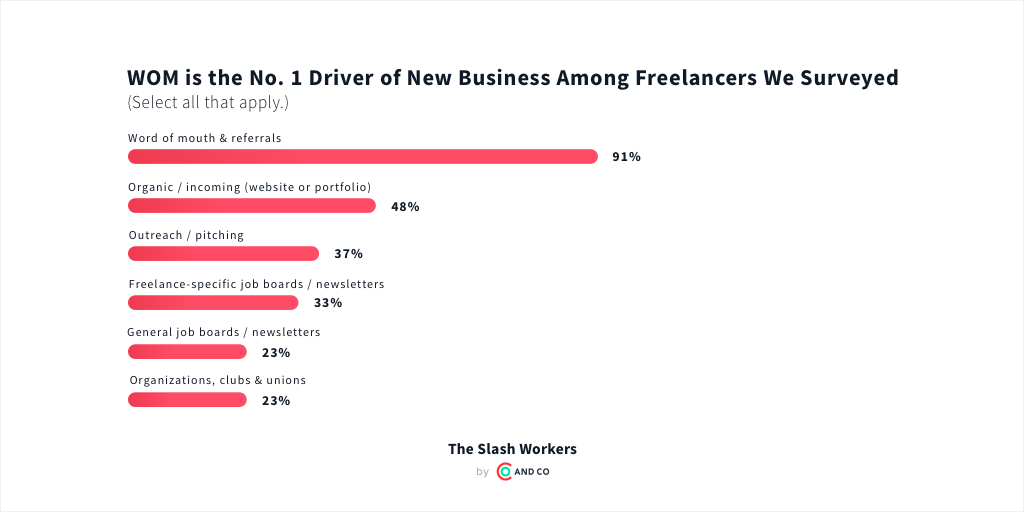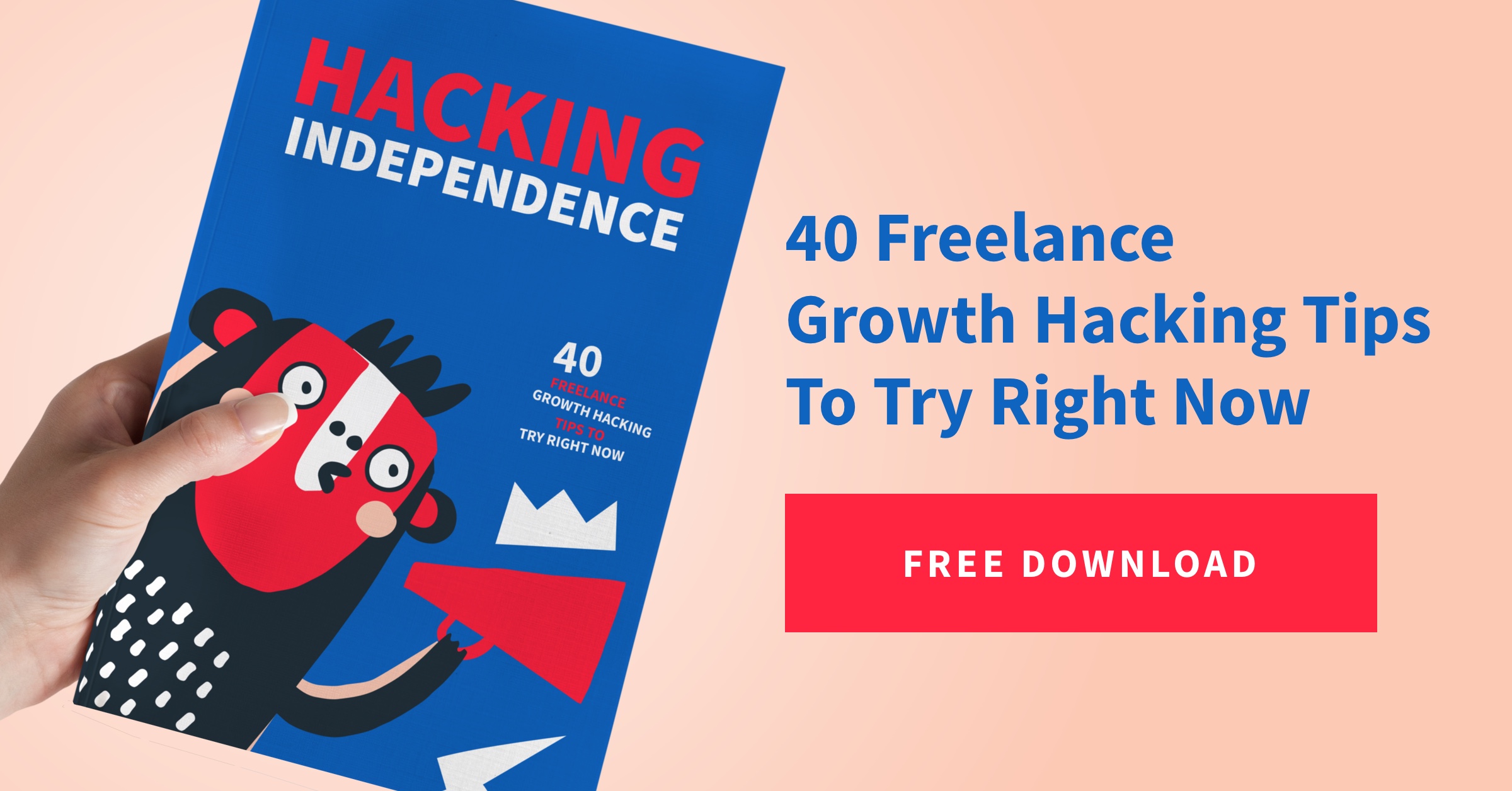- Advice
The secret to finding freelance jobs? Be a hunter
This is a post by our friends at AND CO, an invoicing app for freelancers. Check out our co-created Freelance Contract here.
So, you’ve just gone freelance. Congratulations! You’ve officially taken control of your career destiny. The world is your oyster, [insert optimistic aphorism here], etc. We’ve all heard the saying that with great freedom comes great responsibility, and you’re about to live it, my friend.
The success you’ll have as an independent worker is directly tied to the volume and quality of freelance jobs you’re able to find and, ultimately, close. At your former 9-to-5 role, you might not have had much responsibility by way of business development, but now that you’re out on your own, this very important business function resides with you and you alone.
Finding freelance jobs might seem daunting if you’re new to the game, but with the right mindset and a few quick pointers, you’ll be on your way to building a robust and healthy pipeline of prospective clients. As a freelancer, having a steady stream of work (and prospective work) is fundamental to your livelihood and will ultimately dictate your career stability. The more qualified prospects you have on deck, the more stable your business will be.
Steal these insights from AND CO’s latest book of freelance hacks and watch your client list multiply.
Be a hunter.
At your full-time job, your workload was likely dictated by the ebbs and flows of the organization that surrounded you. A manager likely assigned you various projects, ensuring you had a steady stream of work that tied back to the needs of the business. If you were particularly enterprising, perhaps you proactively sought out opportunities to take on new and different projects to work your way up the ladder.
If this sounds like your M.O., you’re in luck. Being a successful freelancer is all about having the mindset of an entrepreneur, and viewing yourself as a business of one. In the context of new business, this means taking on the persona of a hunter. Instead of waiting for opportunity to find its way to you, habitualize the act of searching for, and closing, new business. The following sections will explain how to bring this hunter mentality to life and make it consistent in your daily routine.
Master your cold email game.
You’ll often hear salespeople gripe about sending so-called “cold” emails, or messages, to prospective clients without any prior connection or correspondence. Cold emails are a staple tactic for many sales teams, but the success rate can be pretty low. Why? Because oftentimes these notes are impersonal, automated or simply not relevant.
When done right, cold emails can be incredibly effective for finding freelance work. Follow this punch-list the next time you go to hit “Send” on an email.
- “To” address: Is the email going to an actual person, ideally the hiring manager? Avoid web forms at all costs. Take ten minutes to find the most appropriate person on LinkedIn and verify their address with a tool like Hunter.io.
- Subject line: Don’t get too cute. Be direct and to the point. The recipient should know exactly what’s up when your message hits their inbox.
- The introduction: Nail down your “about me” statement in one to two sentences tops. Remember that it’s not about you; it’s about how you can help the prospect.
- The sell: Very quickly make your way to what you understand about the prospect’s business needs, and how your expertise can help.
- Social proof: Let your past work and connections prove your legitimacy for you. List out some of your past/current partners and any other relevant associations or creds. Link to your LinkedIn and portfolio.
- Finish strong: A common mistake is to end the email without a proper CTA. What do you want to happen next? Lead the recipient there with a strong closing question, such as, “Do you have 15 minutes in the next week or so to discuss your needs?”
The matter of following up will depend on your personal style. As a general rule of thumb, wait a full week before following up on non-urgent matters. Where you go from there will depend on your own tenacity and overall comfort level with being “that person.”
Look at the bigger picture.
Many independent workers who are new to the game assume that their business growth is restricted to finding and securing “freelance gigs” in their narrowest sense. They might exclusively search for gigs on freelance-specific job boards, which greatly limits the field of potential opportunities.
Being a hunter means thinking big, so don’t settle for table scraps. It makes sense to search for freelance specific opportunities, but don’t be afraid to reach out to hiring teams who’ve posted about full-time roles, as well. A gap is a gap, and it just might work out that you’re able to sell yourself in a freelance capacity for those full-time opportunities.
Here are some quick ways to surface more opportunities:
- Search for full-time reqs that fit your skillset. For example, if you’re a freelance PR consultant, search for roles such as “Director” or “Head of Communications.” Be open about your status and clearly communicate the client benefits associated with hiring a freelance resource. These might include cost savings, a more flexible model and a quicker onboarding timeline.
- Set up an alert on the AngelList jobs board for contract or remote roles that fit your skillset. Startups are generally more flexible when it comes to hiring contractors, and the strategy of hiring a more senior person in a part-time capacity could generate cost-savings for them as they scale.
- Check out remote-only boards, like We Work Remotely and Jobspresso, for opportunities that will allow you to take on projects from wherever you choose.
Sign up for AND CO’s Gig List. Each week, we surface the ten best freelance gigs we can find from companies like Snap, Amazon, Ford and more.

But also look right under your nose.
Per AND CO’s Slash Workers report, word of mouth was the leading source of new business among the freelancers we surveyed. Remember—being a hunter doesn’t just mean tracking down cold opportunities. It’s also about knowing when and how to tap your network to get introductions and score new opportunities.

LinkedIn will be your best friend in this endeavor. Aside from being a destination for showcasing your professional portfolio, LinkedIn can also function as a search engine for your network and a distribution channel for promoting yourself as a freelancer. Use your status for sharing wins across your current clients and staying on the radar as an independent among the people who are in your network.
Looking to take on another client? Don’t be afraid to say so—but do remember that exclusivity is a powerful marketing tool. Instead of generally inquiring about work, say you have bandwidth to take on one additional client and ask if anyone in your network has needs that fit your profile.
Plan your pipe dreams.
Finally, it’s easy to get caught up in the constant chase for new business. As you balance that with everything else you do as a freelancer, it can be hard to find time to map out where you want your business to go. So, make time for your master plan.
Create a gameplan each quarter with monthly milestones and scheduled check-ins. Set aside a couple of hours each quarter to review your progress and take stock of where you succeeded and where you fell short. Make sure that each goal is accompanied with a concrete strategy for how it is to be realized. That’s great you want to increase revenue by 25 percent, but how and when exactly do you plan on accomplishing this?
One of the most tried-and-true approaches is to break big goals into smaller, easily manageable objectives with targeted deadlines. Next, hold yourself accountable for hitting these marks. You can be flexible, but start with hard and firm commitments.
Want even more hacks to build your freelance business? AND CO and about.me just released a new book, called “Hacking Independence.” Grab your free copy here.
Katie Perry is editor at AND CO, an app that helps freelancers, solopreneurs and digital nomads manage their operations. For the latest and greatest freelance gigs each week, check out The Gig List by AND CO.

